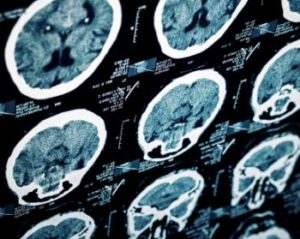 Autism is a mental condition characterized by difficulty in communicating, forming relationships, and an altered way of perceiving the world.
Autism is a mental condition characterized by difficulty in communicating, forming relationships, and an altered way of perceiving the world.
Epilepsy is characterized by bursts of intense electrical activity in the brain and seizures.
At face value, the two conditions do not necessarily look like they are related. However, the relationship between them is now well documented.
Around 20-30 percent of children with autism develop epilepsy by the time they reach adulthood, and autism is present in an estimated 15-50 percent of individuals with epilepsy.
Why the link exists is not known, but the latest research, conducted at University Hospital in Linköping, Sweden, solidifies them further.
Family links between autism and epilepsy
The new study, published this week in Neurology, investigates whether having a relative with epilepsy might increase the risk of an autism diagnosis.
“Other studies have linked the two conditions, however, our study looks specifically at the brothers and sisters and sons and daughters of people with epilepsy to determine a possible autism risk in these relatives.”
Lead author Dr. Heléne E.K. Sundelin
The researchers delved into the data registry and identified 85,201 people with epilepsy, along with their siblings (80,511 individuals) and offspring (98,534 individuals).
Each person with epilepsy was compared with five other people of the same sex, similar age, and from the same country. The siblings of the people with epilepsy were compared with siblings and offspring of people without an epilepsy diagnosis.
Over the course of the 6-year follow-up, 1,381 of the participants with epilepsy and 700 of the people without epilepsy were diagnosed with autism.
The results show that people with epilepsy have an increased risk of being diagnosed with autism – 1.6 percent compared with 0.2 percent. The highest increased risk was seen in those diagnosed with epilepsy while in childhood (5.2 percent).
When the relatives of individuals with epilepsy were studied, they found a 63 percent increased risk of developing autism for siblings and offspring. The effect was most marked in the offspring of mothers with epilepsy, who had a 91 percent increased risk; offspring of fathers with epilepsy had a 38 percent increased risk.
Why the link between autism and epilepsy?
The findings mark another step toward understanding the relationship between the two disorders. By uncovering the similarities and links between them, researchers hope to gain a stronger understanding of the mechanisms at play in both conditions and, eventually, how they can best be treated.
As Dr. Sundelin says: “The goal is to find out more about how these two diseases may be linked so that treatments may be developed that will target both conditions.”
Why autism and epilepsy share common ground is not yet understood. Some scientists theorize that they might have a shared genetic basis. For instance, there has been some interest in the roles of GABA receptor genes and sodium channel genes in both epilepsy and autism. Other mutations in synapse-forming genes, including neuroligins, neurexins, and SHANK-3, have also been investigated as possibilities.
Alternatively, some researchers think that there might be a causal relationship; perhaps the seizures, in some way, produce the autistic features by damaging particular parts of the brain. This opens up the possibility that by treating epilepsy more effectively, autism diagnoses might be reduced. However, the results of the current study show that if there is a causal relationship, it is not the whole story.
Whether epilepsy drugs might reduce autism or vice versa is another question awaiting an answer. The relationship, as well-documented as it is, still holds a raft of mysteries.
MNT DT






